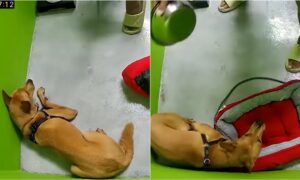“This post contains affiliate links, and I will be compensated if you make a purchase after clicking on my links.”

According to a recent study, feeding cats and dogs wet food has a considerably greater climate impact than feeding them dry food, suggesting that pet owners can drastically lower their carbon footprint by making small adjustments.
The Brazilian study examined the environmental effects of pet food, including greenhouse gas emissions, land use, and water usage, and discovered that a wet diet produced more than seven times as much CO2 as a dry diet.
According to the research, a typical dog’s wet food diet left the same “ecological pawprint” on the animal as it did on its human owner. With an estimated 840 million cats and dogs on the planet, the environmental effects of feeding them are coming under scrutiny.
The Brazilian researchers examined 320 different diets for cats and 618 different diets for dogs, ranging from dry kibble and biscuits to wet food in cans and pouches. The diets were those provided by three major Brazilian pet food retailers, although a few homemade diets were assessed too.
The research, which was published in the journal Scientific Reports, shows that a 10 kg dog eating roughly 500 calories per day in dry food would emit 828 kilograms of CO2 annually, but 6,541 kg of CO2 annually if fed a wet diet. That is almost as much as the annual carbon footprint of the typical Brazilian, which is 6,690 kilograms. The study also noted that there were estimated to be more dogs in Brazil than children.
“Cat and dog owners could significantly reduce the environmental impact of their pets’ diets by feeding them dry food (consisting of kibble or biscuits) rather than wet food with higher water content,” the study said.
“These results highlight the extensive environmental impacts of pet foods, the need to make them more sustainable and an indication of how this may be achieved.”
Previous studies in Japan also discovered that a dog’s ecological footprint can be comparable to that of a Japanese citizen.


















